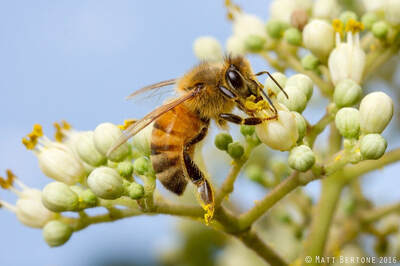|
Are insects mindless robots? Do they experience more than we give them credit for? New evidence indicates that insects and other arthropods may exhibit a broad range of emotions, feelings, and cognitive abilities that we were previously unaware of. By Sydney Crawley Ph.D. Would you think twice about squashing a bug if it was afraid of dying? If it felt pain, would you pause before you applied broad-spectrum insecticides? A sense of awareness as well as the capacity to have feelings such as, but not limited to, fear or pain is classified as sentience. Sentient animals are typically given more animal welfare protection under the law than animals that are not sentient. In addition, vertebrates (animals with a backbone) are often given more protection than invertebrates (animals that lack a backbone). Recently, a group of researchers in the United Kingdom (UK) determined that there is enough evidence to classify certain groups of invertebrates as sentient. In their report (linked within this Smithsonian Magazine article), the authors reviewed 300 research studies. Ultimately, they concluded that invertebrates should be protected under animal welfare laws and that slaughter practices like boiling crustaceans alive are inhumane. Crustaceans such as lobsters, crabs, and crayfish are in the same Phylum (one of the ways we group related animals together) as insects and spiders—the Arthropoda. Arthropoda literally means “jointed foot” and contains all animals with jointed limbs, segmented bodies, and skeletons on the outside versus the inside. Although insects were not assessed for sentience in the report, the authors’ conclusions have implications for the way we view animal awareness, especially among closely related taxa.
However, a number of recent studies indicate that some insects are capable of learning, recall, and a host of other behaviors that are indicators of higher-level cognition. For example, carpenter ants are capable of decision making and wasps can recognize faces. Impressively, honey bees (Apis mellifera) exhibit multiple behaviors indicative of higher-level cognition. They can count to four, communicate the location of food sources using a waggle dance, and they might even scream/feel fear when they are attacked by predators. FINAL THOUGHTS There is mounting evidence that more consideration should be given to insects when it comes to their ability to feel pain, and we probably cannot dismiss these creatures as simply robotic in nature. Whether or not insects are truly sentient remains to be seen, but based on data, we have to at least acknowledge that insects are capable of learning, decision-making, and other complex behaviors that were previously only associated with vertebrates.
0 Comments
Your comment will be posted after it is approved.
Leave a Reply. |
Bug Lessons BlogWelcome science communicators and bug nerds!
Interested in being a guest blogger?
Archives
November 2023
Categories
All
|

